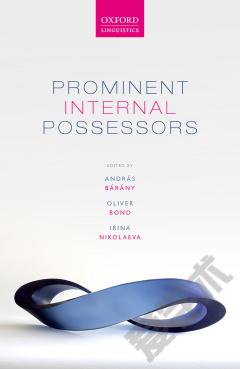Prominent Internal Possessors
This volume is the first to provide a comprehensive cross-linguistic overview of an understudied typological phenomenon, the clause-level argument-like behavior of internal possessors. In some languages, adnominal possessors - or a subset thereof - figure more prominently than expected in the phrase-external syntax, by controlling predicate agreement and/or acting as a switch-reference pivot in same-subject relations. There is no independent evidence that such possessors are external to the possessive phrase or that they assume head status within it. This creates a puzzle for virtually all syntactic theories, as it is generally believed that agreement and switch-reference target phrasal heads rather than dependents. Following an introduction to the typology of the phenomenon and an overview of possible syntactic analyses, chapters in the volume offer more focused case studies from a wide range of languages spoken in the Americas, Eurasia, South Asia, and Australia. The contributions are largely based on novel data collected by the authors and present thorough discussions of the syntactic, semantic, and pragmatic properties of prominent internal possessors in the relevant languages.
{{comment.content}}








 京公网安备 11010802027623号
京公网安备 11010802027623号